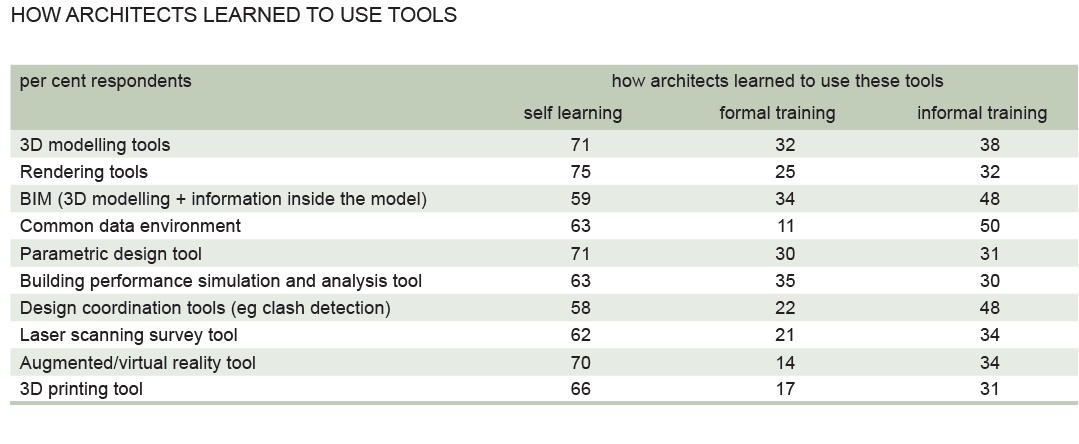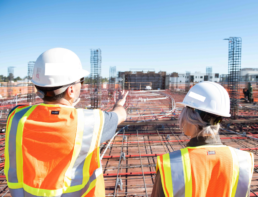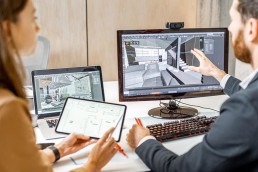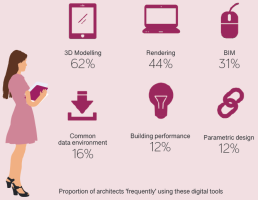The role of ARISE in the implementation of the new RES directive
Anna Moreno, Caterina Nissim
The proposal for a new directive on the promotion of renewable energy sources
The DIRECTIVE OF THE EUROPEAN PARLIAMENT AND OF THE COUNCIL amending Directives (EU) 2018/2001 and 98/70/EC, and the Regulation (EU) 2018/1999 as regards the promotion of energy from renewable sources is a proposal presented in July 2021. Some of the amendments are related to the national system for the qualification system of designers and installers of Renewable Energy Sources (RES) and they are therefore relevant for the ARISE partners.
Let’s examine these modifications in more detail.
Addressing the shortage of competent installers
This proposed modification intends to provide more experts in the domain of designers and installers of RES technologies but also to give the opportunity to other innovative technologies to be promoted thanks to the support of proper qualifications and certification systems. Below, In italic, the original text:
Article 1(7) amends Article 18(3) REDII with adjusted paragraphs on the qualification and certification requirements of installers to deal with the fact that there is a shortage of installers of renewable heating systems, which is a ‘brake’ on phasing out fossil fuel systems. It also deletes the list of specific types of renewable heating technologies and replaces it by a generic reference to RES heating systems.
This proposition opens the market to innovative solutions. ARISE's objective is to deliver a common platform where the competences about the new technologies are based on knowledge, skills and the degree of autonomy following the European Qualification Framework (EQF). For example, the producer of a new technology will be able to provide both the list of the new competences needed to design and install the new system and provide the body of knowledge for training workers and designers. This way, the developers of the new technology will be able to upload to the platform the body of knowledge required to design and/or develop training materials on the correct use of the new technology.
Making a public list of installers a requirement in each Member State
The new directive makes the creation of a public register a requirement:
It amends Article 18(4) REDII by obliging Member States to put in place measures to support participation in training programmes. The previous possibility for Member States to make the list of qualified installers public becomes a requirement.
In the deliverable 2.4, to be published soon on the ARISE web site, we mention the heterogeneity of the Member States on the issue. In countries such as Ireland and the Netherlands, public registers are already required and managed by a national organism while other countries, Portugal and Italy to mention a couple, are still far from the target. In Italy, the qualifications for the installers are realised at regional level, making the development of a national register extremely complex. ARISE will present a solution on a European scale, as the certification of the single competences would provide the tools to develop a singular national/European register. For each technology, it will be identified a list of compulsory competences at European level and each country/region will be able to identify the designers and workers who own those competences.
Requiring transparency in certification schemes issued by Member States for a mutual recognition
In Article 18, paragraphs 3 and 4 are replaced by the following:
- Member States shall ensure that certification schemes are available for installers and designers of all forms of renewable heating and cooling systems in buildings, industry and agriculture, and for installers of solar photovoltaic systems. Those schemes may take into account existing schemes and structures as appropriate, and shall be based on the criteria laid down in Annex IV. Each Member State shall recognise the certification awarded by other Member States in accordance with those criteria.
The ARISE platform will provide the tools for mutual recognition. Each Member State will identify its need in competences for each specific technology by referring to the ARISE platform unit of competences. The need in competences are obviously different in each country, depending on the climate, national regulations and so on. Thanks to an adaptation of these needed competences in each different country on the ARISE platform, it will be possible for workers to move and relocate in different countries all over Europe.
Increasing the number of qualified installers covering renewable heating and cooling technologies
Member States shall ensure that trained and qualified installers of renewable heating and cooling systems are available in sufficient numbers for the relevant technologies to service the growth of renewable heating and cooling required to contribute to the annual increase in the share of renewable energy in the heating and cooling sector as set out in Article 23.
To achieve such sufficient numbers of installers and designers, Member States shall ensure that sufficient training programmes leading to qualification or certification covering renewable heating and cooling technologies, and their latest innovative solutions, are made available. Member States shall put in place measures to promote participation in such programmes, in particular by small and medium-sized enterprises and the self-employed. Member States may put in place voluntary agreements with the relevant technology providers and vendors to train sufficient numbers of installers, which may be based on estimates of sales, in the latest innovative solutions and technologies available on the market.
ARISE has conceived an “open platform” guaranteeing the opportunity, for any professional and worker, to reach the desired “maturity level” for any technology necessary for their work as self-employed or employee. The ARISE platform is also open to producers who wish to ensure that designers and installers own the right competences to design and install their technology correctly.
Public lists of qualified/certified installers
- Member States shall make information on the certification schemes referred to in paragraph 3 available to the public. Member States shall ensure that the list of installers who are qualified or certified in accordance with paragraph 3 is regularly updated and made available to the public.
ARISE will provide a system to certify the single competence through blockchain technology. This means that each competence acquired will be certified and it will not be possible to “manipulate” it. The union of all competences required by each Member State to perform a specific activity, will be identified in the same ARISE platform so that workers will know what the gaps consist in.
Accreditation of the training programs
- The accreditation of the training programme or provider shall be affected by Member States or by the administrative body that they appoint. The accrediting body shall ensure that the training programme offered by the training provider has continuity and regional or national coverage.
The training provider shall have adequate technical facilities to provide practical training, including sufficient laboratory equipment or corresponding facilities to provide practical training.
The training provider shall offer, in addition to the basic training, shorter refresher and upskilling courses organised in training modules allowing installers and designers to add new competences, widen and diversify their skills across several technologies and their combinations. The training provider shall ensure adaptation of training to new renewable technologies in the context of buildings, industry and agriculture. Training providers shall recognise acquired relevant skills.
The training programmes and modules shall be designed to enable life-long learning in renewable installations and be compatible with vocational training for first time job seekers and adults seeking reskilling or new employment.
The training programmes shall be designed in order to facilitate acquiring qualification in different technologies and solutions and avoid limited specialisation in a specific brand or technology. The training provider may be the manufacturer of the equipment or system, institutes or associations.
The ARISE partners do not intend to organize trainings themselves, but to support training institutions by providing the tools to train and qualify blue and white collars for each technology. The platform will be the hinge between two worlds: the technologies producers and the workforce. Training providers will be able to propose the right qualifications selecting the competences in the ARISE platform and accessing to the right training materials. A minor percentage of the fee charged for the courses will be directed to the ARISE platform managers to ensure a regular update of contents. The training providers will manage the access to the trainees who wish to certify their competences with blockchain through the platform.
ARISE’s ultimate goal is to revolutionise the learning process by changing both delivery and recognition of sustainable energy skills in the construction sector. The new system of training and recognition of skills will be valid across the EU, thus increasing the spread of skilled workforce in the building market. The ARISE platform will be the tool to facilitate the duty of any stakeholder of the building chain (owners, producer, training institutions, workers, designers, regional and national qualification organizations) and will substantially contribute to the mobility of workers and services in the building industry through all Europe and beyond.
Anybody interested in contributing to the testing of the platform, please contact us and join our Forum on LinkedIn to participate to open debates.
The Italian Strategy for the qualification of BIM Professional Roles
Over the course of the last few years, IBIMI has developed the so-called Italian OpenBIM roadmap. It is like a path in which to grow and consolidate as an association on a Italian national scale and to be able to give BIM professionals the opportunity to be certified internationally according to the certification programme of buildingSMART International, an international body that oversees the development of open standards such as the IFC format. Common language and shared process are the founding bases that BIM professionals involved in the management of information throughout the building or civil supply chain (survey, design, construction, use, decommissioning) must possess.
On this assumption IBIMI is at the forefront of the development of certifications for figures such as BIM Specialist, Coordinator and Manager. These certifications will cover one of the first important milestones of the buildingSMART certification programme together with the, already widespread in Italy, Individual Qualification on the foundations of BIM methodology.
The association aims to make these certifications and related courses, available by training providers, by the end of this year or by the beginning of next year. The vision is to be able to develop certifications for other types of BIM professionals in the coming years, such as the CDE Manager, site operator, and so on.
On this page you will find the link to download the full document "THE ITALIAN STRATEGY FOR THE QUALIFICATION OF BIM PROFESSIONAL ROLES": https://www.ibimi.it/download/
Digitalisation: what is changing for architects?
An interview with Veronika Schröpfer, Head of EU Research Projects at the Architects’ Council of Europe
>> Digitalisation is changing the work of architects around the globe. At the moment there are around 560.000 architect in Europe, most of these working alone or in small offices. SMEs have the advantage to be quicker to adapt to new technologies and tools. Architects have shown themselves to be extremely willing to learn, more than half of those using each tool are self-taught. Architects are much more likely to use new tools out of personal or business interest than due to client or regulatory requirements. This shows that architects are enthusiastic to adopt digitalisation tools.
The role of the development of digital competences in the building domain
>> Architects contribute around 17 billion Euros to the EU economy (ACE, sector study 2020). Nevertheless, ACE has advocated for more diversity in software and tool providers. Annual licence fees for software can be a barrier for micro sized architecture practices. They cannot afford various licences for similar tools but different providers depending on the project. Hence the interoperability of tools and platforms are vital.
>> You can see in our 2020 ACE sector study, that there has been a proliferation of new digital tools which the architectural profession is adopting. A majority of architects use 3D modelling tools ‘frequently’, and nearly half use rendering tools frequently. About one in three architects frequently use BIM on their projects. An important aspect is that most architects use the tools out of their own choice.
The impact of putting in place a recognition system valid at European level
>> Our 2020 ACE Sector Study has revealed that the vast majority of architects taught themselves how to use digital tools.
No more than 35 per cent received formal training for any of the tools, although more received informal training. On average architects spend about 20 hours of official Continuing Professional Development (CPD) per year. CPD is a structured way of maintaining and developing the competence as a qualified professional by engaging in regular learning activities. For a training recognised and valid at EU level it should be endorsed by ACE Member Organisations in various EU Member States and meet the minimum agreed European quality standards. Various European training bodies should recognise each other’s CPD, making it easier for architects to work in the countries they choose. Usually, one learning hour equals one international CPD credit. Therefore, we joined the ARISE project, as it will work on the recognition of the CPD competences through the development of a platform based on microunits certified with blockchain.

Dr. Veronika Schröpfer, Head of EU Research Projects at the Architects’ Council of Europe
Images and sources of numbers from the ACE Sector Study: https://www.ace-cae.eu/fileadmin/user_upload/2020ACESECTORSTUDY.pdf
Desk research on maturity analysis of digitalisation and sustainable energy skills
The ARISE team is carrying out Desk research on maturity analysis of digitalisation and sustainable energy skills.
The research is led by IECE on models of digital and energy skills frameworks and maturity levels, and developed by several H2020 and Erasmus+ funded projects and international brands (bSI).
The comparative study will include multi-criteria evaluation of skills and qualifications frameworks, identifying the level of compliance and complementarity and specifying similarities and differences thereof, as a specific proof of the ARISE concept of international transact-ability of learning achievements and competencies. One of the study outputs will be a novel model of levelling and alignment matrix developed by the learning outcomes based methodological approach and tested within the team, on several selected professional profiles. In further steps, it will be aligned with the UNESCO and CEDEFOP methodology (2017) by considering NQF as a reference point, and suggested as a sectoral methodology of comparison, alignment and transfer of qualifications.
The report will be published in early Spring 2022.
Access the link below for more information:
https://www.ariseproject.eu/reports/
New Guideline on the use of BIM for energy performance
The current global warming trend is greater than the 1.5 degrees value established during the Paris climate change summit. World leaders reiterated the need to halve emissions over the next decade and reach net zero carbon emissions by mid-century to limit global temperature rise to 1.5 degrees.
The result of this policy is leading to the construction of new buildings with very high performance, but there is a strong need to improve the energy performance of the existing building stock.
Integrating BIM into national climate-change and energy policies is necessary and challenging, as many of these buildings lack reliable information, which BIM can help generate, exchange and, most importantly, archive so that they can be used in the future regardless of the software that generated them. The use of open standards is therefore not an option but an obligation.
The working group on energy efficiency active within IBIMI (Institute for BIM Italy), the Italian chapter of buildingSMART International, worked on the drafting of guidelines on how BIM can contribute to improving energy performance in each phase of the life cycle of a building
The guidelines can be downloaded free of charge from the websitewww.buildingsmartitalia.organd will be used as Body of Knowledge for buildingSMART International Qualification Program on Energy Performance.
We would be grateful if you take a few minutes to answer to a survey on the use of BIM to improve the energy performance of buildings. This will help us to draw the roadmap on the competences needs. At this link the survey:https://docs.google.com/forms/d/e/1FAIpQLScaXQ5eD_FI7AUcs0_C0v3DcdgH5_XDSNMZbVS2vEoju_ixZg/viewform
Digital Transformations - building services engineering article
Find the full article on the building services engineering website.
If industry is to develop and leverage its digital skills for energy efficient construction, and increase its competitiveness, it will be driven via the skills of the workforce. Upskilling must be demand-driven, demand both from the industry perspective and from the workers in the industry. It is this “meeting of demands” that will lead to success in meeting the needs of industry, society and the environment.
Digital transformation is a topical subject for all of industry and is seen as a key organisational strategy to support sustainable growth, especially in industries such as construction which is seen as a technology laggard. BIM is recognised as one of the main digital tools that are critical enablers that can embed digital processes within organisations. Specifically, the information management processes within BIM help companies in transforming traditional information processes and turning the information into data that is easier handled, used and analysed.





